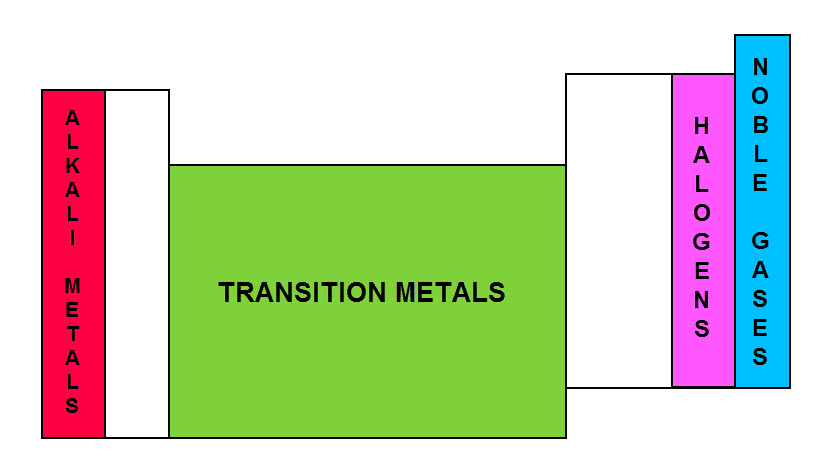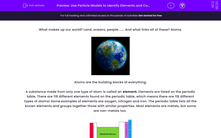What makes up our world? Land, oceans, people....... And what links all of these? Atoms.

Atoms are the building blocks of everything.
A substance made from only one type of atom is called an element. Elements are listed on the periodic table. There are 118 different elements found on the periodic table, which means there are 118 different types of atoms! Some examples of elements are oxygen, nitrogen and iron. The periodic table lists all the known elements and groups together those with similar properties. Most elements are metals, but some are non-metals too.

A compound is a substance that is made from more than one type of atom - it is made from two or more different elements chemically bonded together. Some examples of compounds are water, ethanol and carbon dioxide.

Particle diagrams are used to show atoms and the arrangement of atoms in elements and compounds. All of the atoms in a particle diagram for an element will all be the same colour and size. A particle diagram for a compound will show more than one type of atom, and we can tell the compound is made up of more than one type of atom because they will be different colours and sizes.

Now let's try some questions on atoms, elements and compounds.







